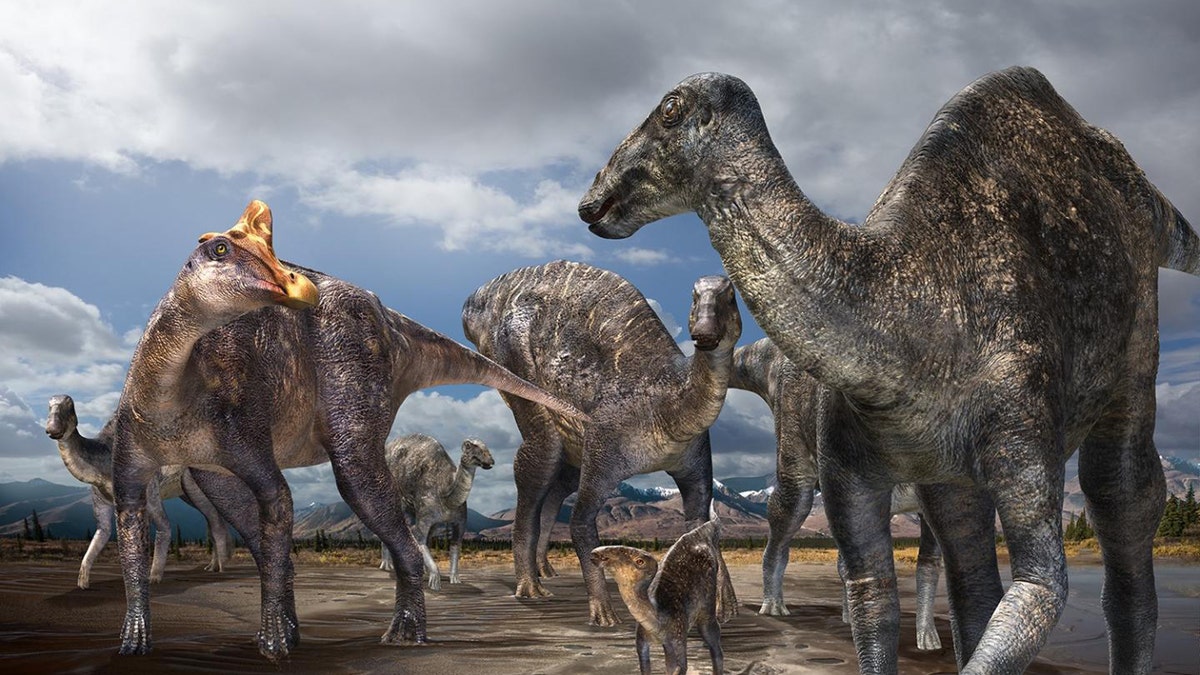
Paleontologists from Hokkaido University in Japan, in cooperation with paleontologists from the Perot Museum of Nature and Science in Dallas, Texas, have discovered the first-confirmed occurrence of a lambeosaurine (crested 'duck-billed' dinosaur) from the Arctic. (Credit: Masato Hattori)
Despite the harsh conditions seen today, duck-billed dinosaurs roved the Arctic 69 million years ago, according to a new study.
During the late Cretaceous period, the Arctic was vastly different than it is today, an area full of vegetation and a warm climate, ripe for a number of different dinosaur species, including theropods, members of the tyrannosaur family and the aforementioned duck-billed dinos. The discovery of the lambeosaurine (crested 'duck-billed' dinosaur) may shed new light on the geographic link between North America and Asia at the time, paleontologist and the study's leader, Ryuji Takasaki, said.
"This new discovery illustrates the geographic link between lambeosaurines of North America and the Far East," Takasaki said in a statement. "Hopefully, further work in Alaska will reveal how closely the dinosaurs of Asia and North America are connected."
WORLD'S BIGGEST TYRANNOSAURUS REX FOUND BY CANADIAN PALEONTOLOGISTS
The findings were published in Scientific Reports and the fossils were discovered in Alaska's North Slope. They are now located in the Perot Museum of Nature and Science in Dallas.
Included in the fossils of the lambeosaurine are skull fragments with bone protuberances. The skulls are also significantly shorter than other duck-billed dinosaurs, known as hadrosaurs.
"The lambeosaurine supraoccipital has well-developed squamosal bosses and a short sutural surface with the exoccipital-opisthotic complex, and is similar to lambeosaurine supraoccipitals from the Dinosaur Park Formation in having anteriorly positioned squamosal bosses," the study's abstract reads.
The presence of the lambeosaurine will hopefully shed new light on biodiversity among dinosaurs during the period, according to Dr. Anthony R. Fiorillo, who works at the Perot Museum.
"This first definitive evidence of a crested hadrosaur in the Cretaceous Arctic tells us that we still have much to learn about the biodiversity and the biologically productive environments of the ancient north, and that the story these fossils tell us is continually evolving," Dr. Fiorillo added.








































